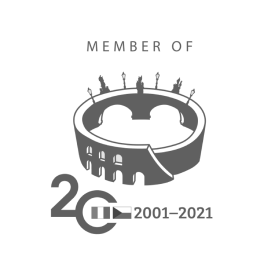
Decline in Purchasing Power in Czech Republic
Purchasing power is a critical component of a nation’s economic well-being and consumer confidence. In recent years, the Czech Republic has experienced a significant decline in purchasing power, particularly since 2023, with ongoing impacts on economic growth and family finances.
Inflation in the Czech Republic reached record highs, fluctuating between 2.0% and 17.5% from 2023 to 2024. According to the CNB, as of October 2024, inflation stood at 2.8%, one of the highest rates in Central Europe. This inflation surge is attributed to various factors: rising energy costs, global supply chain disruptions, and the depreciation of the koruna, which makes imported goods more expensive. This last factor has especially driven up food and energy prices, which account for a significant portion of monthly household expenses.
This year, inflation is forecasted to reach 2.5%, and it is expected to remain close to the target next year, although it may increase at the beginning of the year. This confirms the validity of the current cautious approach to rate reduction.
An example is the cost of groceries, which has risen by an average of 15% compared to the previous year, making access to essential goods more difficult for low- and middle-income families. The Czech koruna has lost about 5% of its value against the euro and nearly 7% against the dollar between 2023 and 2024, according to data from Expats.cz. This devaluation has two main effects: on one hand, it raises import costs, driving up consumer goods prices; on the other, it makes Czech exports more competitive, potentially supporting the manufacturing sector and the trade balance. However, for domestic consumers, the weakening of the koruna has meant a direct increase in the prices of many imported goods, contributing to the decline in purchasing power.
The Czech National Bank responded to inflation by raising interest rates, which reached 7% in 2024, the highest level in the last 20 years. This restrictive monetary policy aims to reduce credit demand and cool the economy to contain inflation. However, the rate hike has generated significant side effects:
– Limited credit access: Higher rates make loans more expensive for consumers and businesses, limiting investments and spending on durable consumer goods.
– Reduced domestic demand: With high rates, families tend to cut consumption, especially non-essential purchases, to adjust to the rising cost of money. According to Seznam Zprávy, about 60% of families reduced spending on non-essential goods in 2024.
The impact of reduced purchasing power is evident in the spending habits of Czech citizens. According to reports, consumer confidence has reached its lowest levels since 2020, with a significant reduction in discretionary spending and an increase in the tendency to save. Price increases have led consumers to focus on essential goods, with 40% of families deciding to forego goods and services like vacations and restaurants, according to Seznam Zprávy data.
This “forced saving” behavior has impacted domestic demand, with many businesses reporting a decline in sales. This drop in demand is also reflected in the country’s GDP, which saw slowed growth of 1.8% in 2023. According to forecasts, the Czech Republic’s GDP will grow by 1% this year, with economic growth reaching 2.4% next year.
The reduction in purchasing power and domestic demand represents a threat to Czech economic growth. The CNB expects the situation to remain critical throughout 2024, with high inflation and limited GDP growth. Some economists suggest that the Czech government should consider income support measures for families, such as direct subsidies or targeted tax reductions, to stimulate consumption and improve confidence.
Measures like these could serve as an important lever to boost domestic demand and promote more balanced growth, reducing dependence on external factors and enhancing national economic resilience.
It is important to contextualize this information to avoid misinterpretations: Like many EU member states, the Czech Republic has faced an unprecedented series of economic and geopolitical crises in recent years. In 2020, the global pandemic led to lockdowns and significant economic disruptions. In 2022, Russia’s invasion of Ukraine further destabilized Europe, continuing as a war of attrition. In 2023, the intensification of the conflict between Israel and Palestine raised additional concerns, while Germany’s current economic challenges, the Czech Republic’s main trading partner, have exerted further pressure on the Czech economy.
Sources: https://www.cnb.cz/export/sites/cnb/en/financial-markets/.galleries/inflation_expectations_ft/inflation_expectations_ft_2024/A_inflocek_09_2024.pdf , https://www.expats.cz/czech-news/article/czech-purchasing-power-drops-for-first-time-in-four-years-as-koruna-weakens ; https://www.seznamzpravy.cz/clanek/ekonomika-proc-neutracime-v-krizi-jsme-prilis-zchudli-264288.




